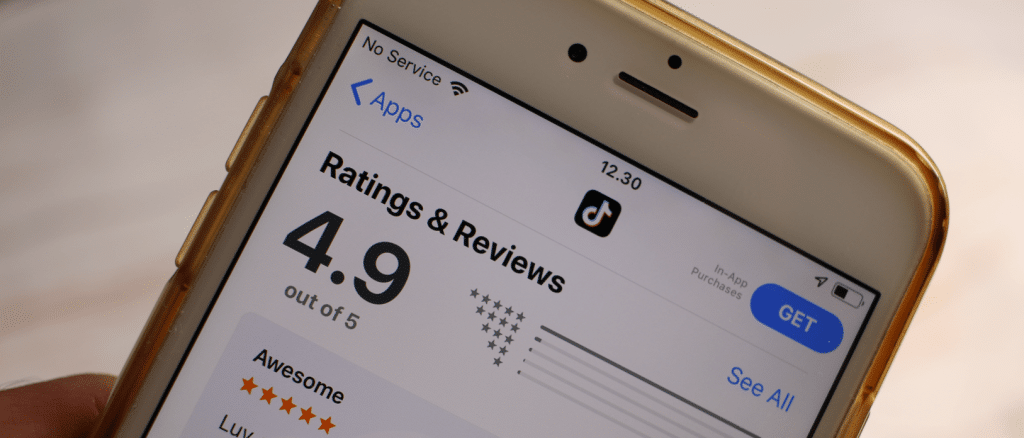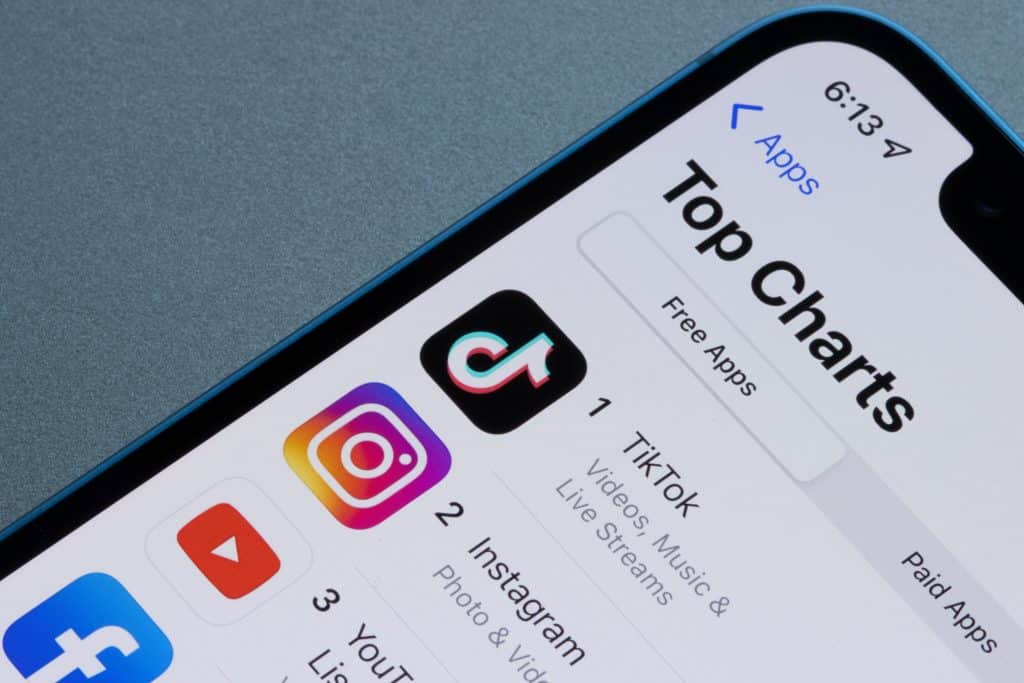Maximizing the Potential of Ratings and Customer Reviews for Mobile Apps

Mobile app success depends heavily on user experience, with ratings and reviews playing a pivotal role in shaping public perception. In fact, users rely heavily on these metrics to gauge the worth of downloading and using an app.
With ASO (App Store Optimization) now recognized as a critical facet of app development, ratings and reviews are among the most significant criteria in determining an app’s ranking in app stores.
In this article, we’ll dive into the importance of ratings and reviews and their potential to enhance ASO, ultimately driving the success of a mobile app. We’ll explore how user feedback impacts app store rankings and how app developers and marketers can leverage it to improve their app’s overall quality and user experience. Additionally, we’ll highlight best practices for managing user feedback, including how to respond to negative reviews and turn them into valuable opportunities for growth.
The Importance of App Ratings and Reviews
As mentioned, ratings and reviews are essential ranking factors for mobile app success. Users mainly rely on user reviews to make informed decisions about which apps to download and use.

Positive ratings and reviews can dramatically boost your app’s exposure, trustworthiness, and user confidence. Negative reviews, on the other hand, might affect your app’s reputation and user base. As a result, handling user feedback is critical for app developers and marketers looking to improve the success of their products, as they provide useful information about the user experience.
Marketers and developers may utilize user feedback to discover areas for improvement and make the required modifications to improve their app’s overall quality and user experience.
Furthermore, reacting to user feedback can contribute to the growth of user trust and loyalty. Regularly responding to customer engagement can help demonstrate your dedication to offering a high-quality app experience and cultivate a loyal user base by acknowledging and immediately addressing user concerns.
Looking to Boost Your ASO Strategy?
Our team of experts is always available!
How Do Ratings and Reviews Enhance ASO?
Ratings and reviews are an inseparable part of app store optimization (ASO), which is the process of improving an app’s visibility and ranking in app stores such as the Google Play Store or the Apple App Store.

Here are some ways ratings and reviews can amplify your ASO efforts:
- Increasing visibility: The quantity of ratings and reviews an app garners can significantly impact its visibility in the app store. Apps with more ratings and reviews tend to have a better search rank and are featured more prominently, resulting in increased visibility and downloads.
- Improved user engagement: Ratings and reviews provide social proof and encourage users to share their experiences, which can drive user engagement. Favorable ratings can trigger word-of-mouth marketing, further elevating app awareness and downloads.
- Enhanced Credibility: Positive ratings and reviews can enhance user trust and credibility, leading to higher rates of downloads and user engagement. Users are more likely to download an app with high ratings than one with poor or no reviews.
How does user feedback affect app store rankings?
User feedback, in the form of ratings and reviews, is a critical factor in app store rankings. App stores rely on sophisticated algorithms to gauge an app’s relevance and popularity, and user feedback plays a pivotal role in this assessment. App stores take into account factors such as the frequency and quantity of ratings and reviews, user engagement, total ratings, and other criteria when determining an app’s ranking.

Apps with copious amounts of ratings and reviews are deemed more relevant and appealing and, as a result, tend to rank higher in search results and featured sections.
App store algorithms also analyze the keywords used in reviews and responses as supplementary metadata, potentially resulting in increased keyword rankings and improved visibility.
- Responding to user feedback while integrating keywords into the app’s metadata can contribute to improved keyword ranks and more visibility.
How to Utilize Ratings and Reviews to Improve User Experience
Here are a few examples of how app developers and marketers can use ratings and reviews to improve user experience and app retention rate:
Respond to user feedback
You should routinely monitor your app’s reviews and ratings and reply to user feedback swiftly, resolving any problems or complaints. This demonstrates to users that you value their feedback and are devoted to enhancing the user experience of your product.
Evaluate user feedback
Developers should examine user feedback to find recurring problems, defects, or user pain points that must be resolved.

Make changes
Based on the analysis of user feedback, developers and marketers can make changes and updates to their apps, resolving user concerns and improving their overall experience.
Promote positive reviews
By offering incentives like discounts or exclusive content, developers may encourage users to post positive reviews. Good ratings can boost the app’s total rating score and make it more visible in the app stores’ search results.
Respond to negative reviews
Address unfavorable reviews by replying to users, recognizing their problems, and proposing realistic solutions. This will assist to offset any negative influence on the app’s rating while also encouraging consumers to keep using the app.
By implementing these measures, users who submit a bad review may be more likely to revise their review or rating and write a favorable one.
Need Help With Your Mobile Marketing Strategy?
Our team of experts is always available!
Best Practices
Here are some best practices for replying to reviews and ratings:
- Reply as soon as possible: Reacting to user feedback quickly demonstrates that you care about their experience and are dedicated to improving your product.
- Be kind and professional: Always be nice, respectful, and professional while replying to reviews. Even if the review is negative, avoid getting defensive or aggressive.
- Address the concerns: Take the time to read and grasp the user’s concern or issue properly, and then deliver a useful answer.

- Provide a solution: If at all feasible, give a solution to the user’s issue or concern. This might include giving them advice, directing them to useful resources, or explaining how to better utilize a certain feature of your app.
- Thank the user: Regardless of whether the review is positive or negative, always thank the user for taking the time to give feedback. This demonstrates that you respect their input and are grateful for it.
- Personalized responses: Address the user by name and make your response feel personalized. This will aid in the development of a relationship with the user and make them feel appreciated.
- Avoid canned or generic responses: People can easily detect them from a mile away, making your response appear insincere.
Examples
How to reply to a positive review:
Hi [user name], thank you for sharing your positive experience with our app! We’re thrilled to hear that you’re enjoying [specific feature], as we’re committed to providing the best user experience possible. Please contact us if you have any additional feedback or recommendations.
How to reply to a negative review:
Hi [user name], we’re sorry to hear that you’re experiencing issues with our app. We take all feedback seriously and are committed to resolving any problems that our users encounter. Could you please provide more details about the issue you’re facing so that we can investigate and work on a solution? We appreciate your patience and eagerly await your response.
Conclusion
Ultimately, ratings and reviews are critical to the success of mobile apps. They not only assist app developers and marketers in improving the user experience, but they also have an influence on the app’s ranking in the app store. Paying attention to user feedback is critical for improving the overall user experience and boosting engagement.
Therefore, you should take every opportunity to actively manage and respond to both positive and negative ratings and reviews in order to demonstrate your dedication to the users and desire to make the required improvements to provide them with the best possible experience.
Looking for an ASO Agency?
Our team of experts is always available!
FAQs (Frequently Asked Questions)
User experience is an essential factor in mobile app success, and ratings and reviews are critical components that shape public perception of an application.
Ratings and reviews are a key component of app store optimization (ASO), which is the process of improving an app’s visibility and ranking in app stores such as the Google Play Store or the Apple App Store. They can enhance ASO through increased visibility, enhanced user engagement, and improved credibility.
Yes, app developers and marketers can respond to customer reviews, and doing so appropriately can help manage customers’ expectations, correct mistakes, and turn critical reviews into opportunities for growth.
Best practices for handling user feedback include responding to reviews, understanding user needs and addressing complaints, thanking users for positive feedback, and integrating feedback into product developments.






